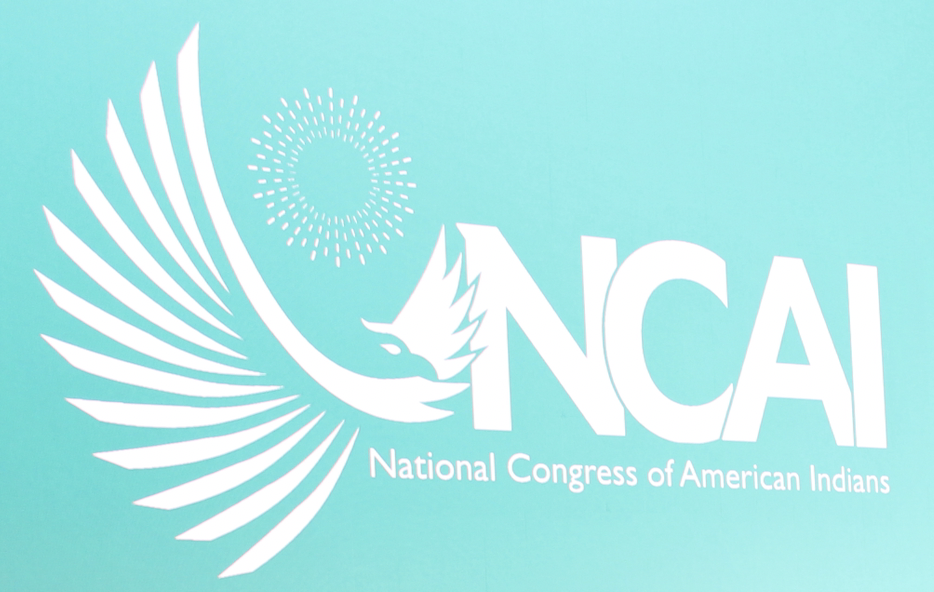
- Details
- By Levi Rickert
NEW ORLEANS — One of the most controversial and divisive issues facing the National Congress of American Indians (NCAI) in years will be voted on this week at the largest Native American national organization’s 80th Annual Convention and Marketplace convening at the Ernest N. Morial Convention Center meeting in New Orleans.
Members will vote on Thursday on two separate constitutional amendments that will restrict voting rights to those from federally recognized tribes versus state recognized tribes.
One amendment will limit NCAI membership to federally recognized tribes, and only citizens of federally recognized tribes will be eligible for an individual Indian membership. Those from state recognized tribes will be restricted to associate member status with no voting rights. A second amendment would ensure NCAI board members and regional vice presidents are citizens of federally recognized tribes.
The proposed amendments come based on the validity of some state recognized tribes being nothing more than hobbyist groups that have gained state recognition with little–or no–actual Native American blood among their membership.
When NCAI was founded 80 years ago, it was established on the principles of unity and advocating against past federal policies of termination, marginalization, denying tribes their treaty rights, trust responsibility and sovereignty.
In 1978, NCAI convened its National Conference on Tribal Recognition, unanimously adopting a Declaration of twelve principles, proclaiming that “as an organization that represents the common interest of all tribes,” NCAI demands that the United States “fulfill its obligation to all tribes . . . and acknowledge the existence” of non-federally recognized tribal governments.
Currently, NCAI has 145 tribal members. Of that number, 24 are state recognized tribes.
Proponents of the proposed amendments see allowing state recognition as a threat to tribal sovereignty.
Cherokee Nation Principal Chief Chuck Hoskin, Jr. is in favor of the amendments and uses strong language to make his point in a guest opinion Native News Online published on Sunday, November 12, 2023.
“Under the current NCAI constitution, Cherokee Nation is placed on par with many groups who falsely claim a Cherokee history and culture — frauds from across the country like the United Cherokee AniYunWiYa Nation, the Georgia Tribe of Eastern Cherokees and the Echota Cherokee Tribe of Alabama. Rather than earn federal recognition through a rigorous examination of history, facts and the law, these phony organizations pose as tribes, seek and receive state recognition, and perpetuate a lie,” Chief Hoskin states.
“If NCAI persists in keeping groups posing as tribes on par with federally recognized tribes, we may be at a crossroads. Federally recognized tribes will need to consider whether NCAI can remain a viable organization able to protect, defend and advocate for the interests of actual tribes,” says in his conclusion.
Those who oppose the constitutional amendment argue NCAI is moving away from a position it took at its 1978 convention.
Former NCAI President Brian “Spee-Pots” Cladoosby (Swinomish Indian Tribal Community), who served as the 21st NCAI president from 2013 to 2017, is opposed to the proposed amendments and says passing them would result in a self-inflicted wound for the organization.
“Relatives, we must oppose the proposed NCAI constitutional amendments to exclude state recognized tribes from voting membership. The issue of state recognition is not a national issue; it is not an NCAI issue. That issue must be addressed at the local, inter-Tribal level. The amendments threaten to weaken NCAI by lowering our membership numbers. Already down from 270 to 145 member tribes, it has been difficult for NCAI to achieve a quorum in recent years. The exclusion of state recognized Tribes would only further weaken NCAI and make the organization’s governance more difficult. We cannot afford this self-inflicted wound. We cannot and should not do the bidding of the federal government. Please vote against the proposed amendments,” Cladoosby writes in a statement sent to Native News Online.
On Tuesday morning, during its general session, the controversial amendments will be debated prior to Thursday’s vote.
More Stories Like This
Chickasaw Lighthorse Police Officer named Indian Country Law Enforcement Officer of the YearIndian Gaming Association Rallies Broad Coalition Against Sports Event Contracts It Calls Illegal Threat to Tribal Sovereignty
Navajo Resources and Development Committee Issues Notice on Livestock Inspection Requirements
American Prairie, Tribal Coalition Files Protest Over Rescinded Grazing Rights
Northern Cheyenne Push Back Against Trump Administration’s Effort to Alter Little Bighorn History
Help us defend tribal sovereignty.
At Native News Online, our mission is rooted in telling the stories that strengthen sovereignty and uplift Indigenous voices — not just at year’s end, but every single day.
Because of your generosity last year, we were able to keep our reporters on the ground in tribal communities, at national gatherings and in the halls of Congress — covering the issues that matter most to Indian Country: sovereignty, culture, education, health and economic opportunity.
That support sustained us through a tough year in 2025. Now, as we look to the year ahead, we need your help right now to ensure warrior journalism remains strong — reporting that defends tribal sovereignty, amplifies Native truth, and holds power accountable.
 The stakes couldn't be higher. Your support keeps Native voices heard, Native stories told and Native sovereignty defended.
The stakes couldn't be higher. Your support keeps Native voices heard, Native stories told and Native sovereignty defended.
Stand with Warrior Journalism today.
Levi Rickert (Potawatomi), Editor & Publisher


